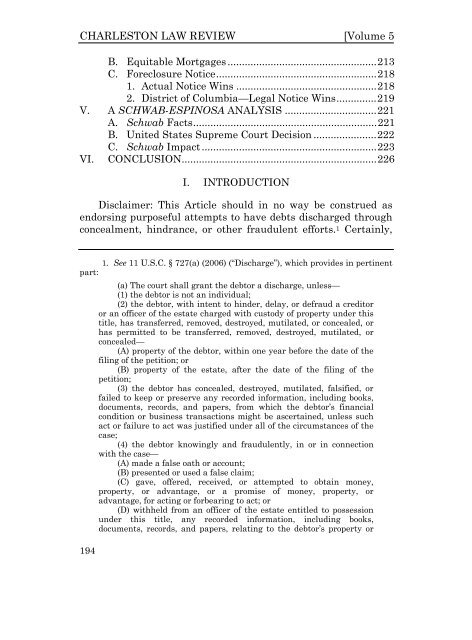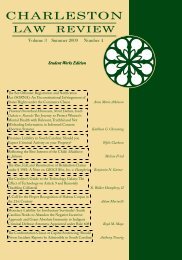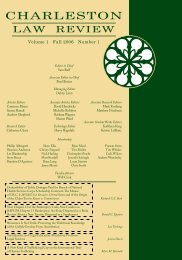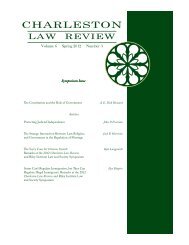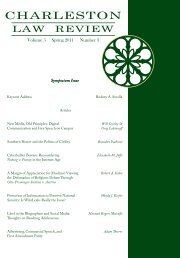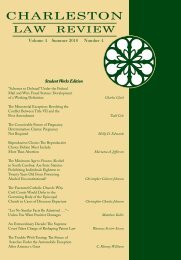Volume 5 Winter 2011 Number 2 - Charleston Law Review
Volume 5 Winter 2011 Number 2 - Charleston Law Review
Volume 5 Winter 2011 Number 2 - Charleston Law Review
Create successful ePaper yourself
Turn your PDF publications into a flip-book with our unique Google optimized e-Paper software.
CHARLESTON LAW REVIEW [<strong>Volume</strong> 5B. Equitable Mortgages .................................................... 213C. Foreclosure Notice ........................................................ 2181. Actual Notice Wins ................................................. 2182. District of Columbia—Legal Notice Wins .............. 219V. A SCHWAB-ESPINOSA ANALYSIS ................................ 221A. Schwab Facts ................................................................ 221B. United States Supreme Court Decision ...................... 222C. Schwab Impact ............................................................. 223VI. CONCLUSION .................................................................... 226I. INTRODUCTIONDisclaimer: This Article should in no way be construed asendorsing purposeful attempts to have debts discharged throughconcealment, hindrance, or other fraudulent efforts. 1 Certainly,1. See 11 U.S.C. § 727(a) (2006) (“Discharge”), which provides in pertinentpart:194(a) The court shall grant the debtor a discharge, unless—(1) the debtor is not an individual;(2) the debtor, with intent to hinder, delay, or defraud a creditoror an officer of the estate charged with custody of property under thistitle, has transferred, removed, destroyed, mutilated, or concealed, orhas permitted to be transferred, removed, destroyed, mutilated, orconcealed—(A) property of the debtor, within one year before the date of thefiling of the petition; or(B) property of the estate, after the date of the filing of thepetition;(3) the debtor has concealed, destroyed, mutilated, falsified, orfailed to keep or preserve any recorded information, including books,documents, records, and papers, from which the debtor’s financialcondition or business transactions might be ascertained, unless suchact or failure to act was justified under all of the circumstances of thecase;(4) the debtor knowingly and fraudulently, in or in connectionwith the case—(A) made a false oath or account;(B) presented or used a false claim;(C) gave, offered, received, or attempted to obtain money,property, or advantage, or a promise of money, property, oradvantage, for acting or forbearing to act; or(D) withheld from an officer of the estate entitled to possessionunder this title, any recorded information, including books,documents, records, and papers, relating to the debtor’s property or


